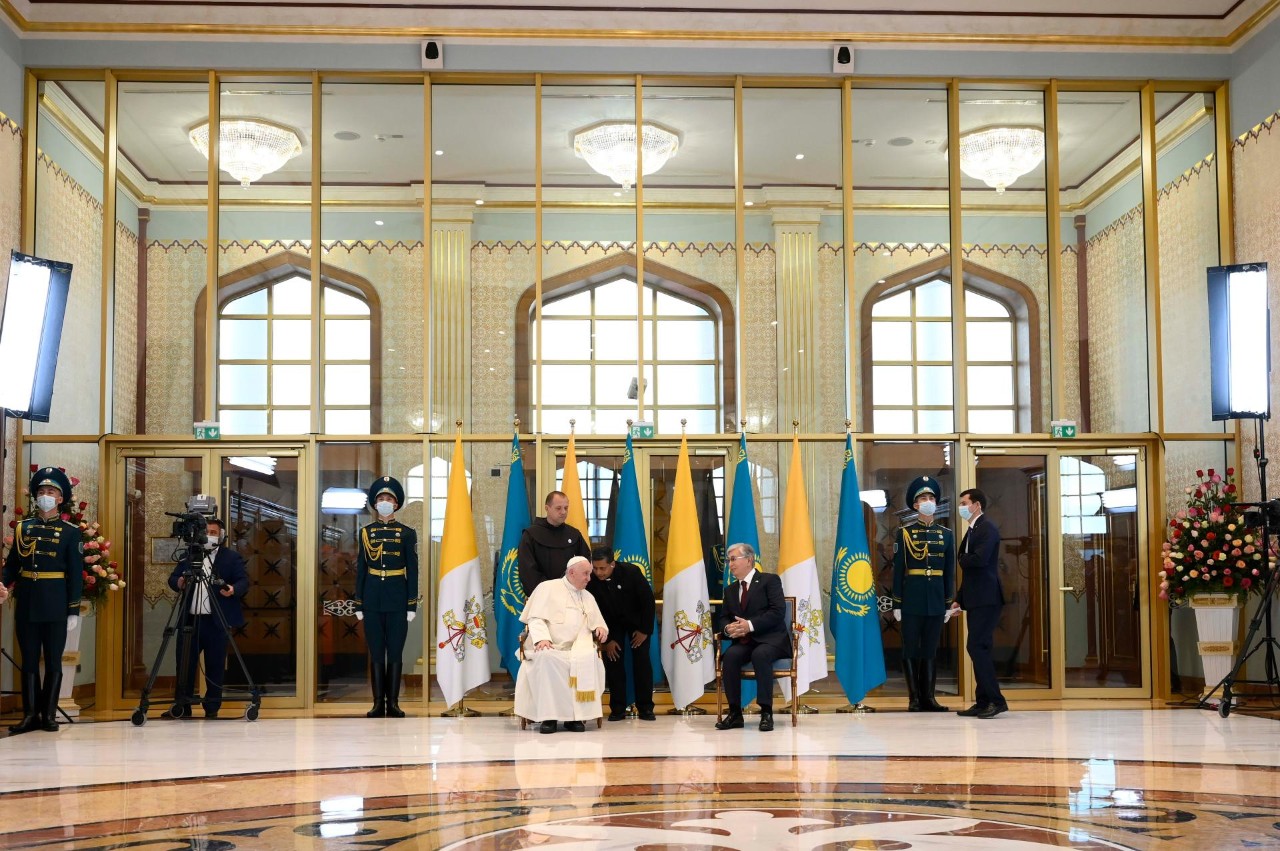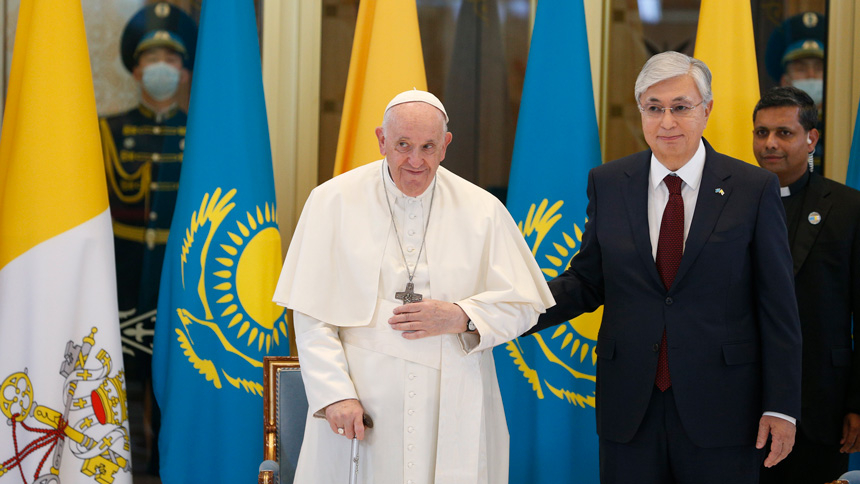In his address to the 7th Congress of World Religious Leaders, Pope Francis said that it is the duty of religions to remind society of the sanctity of all human life and how to grow in friendship to quench the thirst for world peace and the divinity that fills the hearts of each one of us.
"Today it is difficult for us to accept the human being," the Pope told attendees at the interfaith summit. "Everyday children, born and unborn, immigrants and the elderly, are abandoned. Many of our brothers and sisters die sacrificed on the altar of profit amid the incense clouds of indifference. Yet all men are saints."
The first major event on the Pope's schedule in Kazakhstan was an address to participants of the Seventh Congress of Leaders of World and Traditional Religions in the country's capital, Nur-Sultan, on Wednesday morning.

"Homo sacra res homini," he said, quoting the Roman philosopher Seneca. "It is our task, above all, for religions, to remind the world of this."
The Pope began by addressing the Congress, "Brothers... in the name of the fraternity that unites us as children of the same heaven." He continued, "Prior to the mystery of divinity that transcends and fascinates us, religions remind us that we are creatures ... not omnipotent ... our journey toward the same heavenly goal."
This shared nature then creates naturally "a common bond, an authentic fraternity," said the Pope, recalling how the Central Asian nation of Kazakhstan throughout history has been a land of encounters involving ideas, faiths, and trade as in the ancient silk route.
He expressed hopes for the encounter of religions to be always based on human relationships marked by "respect, sincere dialogue, respect for the inviolable dignity of each human being, and mutual cooperation."
In his address, Pope Francis also emphasized the importance of protecting religious freedom.

"Freedom of religion is a basic, primary and inalienable right that needs to be promoted everywhere and not limited to freedom of worship," he said.
"Every person has the right to publicly testify to his own creed and to prescribe it without being imposed upon."
"To relegate the most important beliefs of our lives to the private realm would be to deprive society of a great treasure," the Pope continued.
He said the best way to enhance the distinctive features of religious, ethnic and cultural differences is to "work for a society marked by dignified coexistence".
We must "bring people together by respecting their diversity," he said, "and encouraging their highest aspirations without compromising their dynamism."
Pope urged his fellow religious leaders to continue promoting peace. "There needs to be a leap and it needs to come from us," he said.
“If the Creator to whom we have given our lives is the author of human life, how can we who call ourselves believers agree to the destruction of that life? Can the great religions, the soul of so many cultures and traditions, be inspired to engage in respectful and responsible dialogue if they are not actively committed to peace? , how can we imagine that so many of the men and women of our time live as if God did not exist?
"God is peace," Pope Francis underlined. "He always leads us in the way of peace, never in the way of war."
"In that case, we can be more committed to the need to resolve conflicts, not through weapons, threats, or the means of power, but through the only means blessed by heaven and worthy of man: through confrontation, dialogue and patience. Especially when considering the youth and future generations," he said.
"Young people hold the hope that peace will emerge, not as a weak result of tough negotiations, but as a result of a commitment to an education that can support their aspirations for development and a peaceful future."
The Pope will celebrate Mass and meet with Catholic bishops, priests, seminarians, consecrated men and women and other pastoral workers. On the morning of his last day, he would have a private meeting with the Jesuits, as he did on all his trips abroad.
Source: CNA